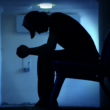What to Do If You Have a Mental Health Crisis
July 3, 2023
A mental health crisis can be overwhelming and alarming for a person experiencing the crisis, and for those around them, including friends and family members.
If you believe you’re in crisis, you deserve help and support, because your mental health matters. If you feel like you’re having a mental health emergency, there are some specific actions you can take to deal with the situation.
What Is a Mental Health Crisis?
When someone’s behaviors prevent them from functioning—or there are signs they might harm themselves or others—that is a mental health crisis.
Among those who treat or advocate for those who have mental illnesses, there is some disagreement over the terms “mental health crisis” and “mental health emergency.”
Some say that an emergency exists when the situation presents physical danger to the individual or others, and a crisis is when the circumstances aren’t life-threatening.
Many individuals and organizations like the National Alliance on Mental Illness (NAMI) use the terms interchangeably. Regardless of what you call it—a mental health crisis, emergency or mental breakdown—people in these situations need immediate support and help.
How Do You Know if You Are in Crisis?
The American Psychological Association (APA) says the most common sign of crisis is “a clear and abrupt change in behavior.” If you or someone you care about is exhibiting moods and behaviors that are not typical, that may be a sign of an imminent crisis.
PsychCentral.com suggests that these are some of the signs of a mental health crisis:
- Difficulty in functioning or being unable to function (e.g., hard to get out of bed, go to work, or do daily tasks)
- Having challenges or an inability to take care of your hygiene, such as brushing your teeth, changing clothes and bathing
- Intense or sudden changes in mood
- Psychosis such as hallucinations or delusions
- Paranoia
- Feeling increasingly agitated, angry, or violent
- Suicidal thoughts or planning
- Harming yourself or self-medicating
- Isolating or withdrawing from others
What to Do if You Are Experiencing a Mental Health Crisis.
Natasha Tracy, a mental health advocate and award-winning writer of books and articles about the subject who also lives with bipolar disorder, offers actions you can take. This is what she says:
- Call your prescribing practitioner (assumed to be a psychiatrist here) immediately. Make sure you make it clear that you’re in a crisis and that you need a call back as soon as possible. This call is not just a question for them; this is a required, critical intervention. Don’t beat around the bush with what you need.
- When you contact your psychiatrist, don’t hesitate to ask for an emergency number or ask them to be paged. That is what those options are for.
- If you can’t get a hold of your psychiatrist, find out if another doctor is covering for them. Again, you need timely help no matter what.
- You can also contact your general practitioner (GP). If your psychiatrist isn’t calling you back, get your GP to talk to them. A doctor’s request may trump yours (unfortunately).
- Contact your therapist. In an ongoing psychiatric crisis, a psychotherapist might be the best person to pull you back.
- When you talk to a doctor or therapist, don’t hold back. Make sure and be 100% honest about what is happening to you. Again, use the word “crisis.”
- When you talk to a doctor or therapist, make sure you plan for how to handle your ongoing psychiatric crisis, including what to do if things don’t improve.
- Think about when you can and cannot go to work or school. Also, consider how you will communicate this information to your workplace or school.
- Get yourself to a safe place. While you may not be in acute danger now, things can change. Make sure you’re in a safe place with safe people.
- Call 9-8-8 [Suicide and Crisis Lifeline] if you need to. Remember, while waiting for your psychiatrist to return your call you can reach out to others.
- Call one or more loved ones for help. They can help by staying with you, making calls for you, picking up medications for you, cooking for you, and so on. They can be critical supports during this time.
If You Believe You or Someone Else Is in Immediate Danger, Call 911.
If you call 911, be as clear as possible about why you are calling, and be as specific as you can about the situation. Tell the 911 dispatcher that this is a mental health crisis, so police officers can come with the right mindset to de-escalate the situation.
More Americans are living with mental and emotional distress than ever before. According to Johns Hopkins Medicine, about 1 in 4 American adults currently has a diagnosable mental disorder.
That’s around 67 million people. Mental health disorders account for several of the top causes of disability. (At Nash Disability Law in Chicago, our team of disability lawyers helps people who can’t work—due to mental health and physical impairments—get financial assistance through Social Security Disability benefits.)
We all need to be prepared for a mental health crisis, to be able to handle a difficult situation, and to prevent it from escalating. You can make a difference by understanding what a mental crisis looks like and how to find help.


